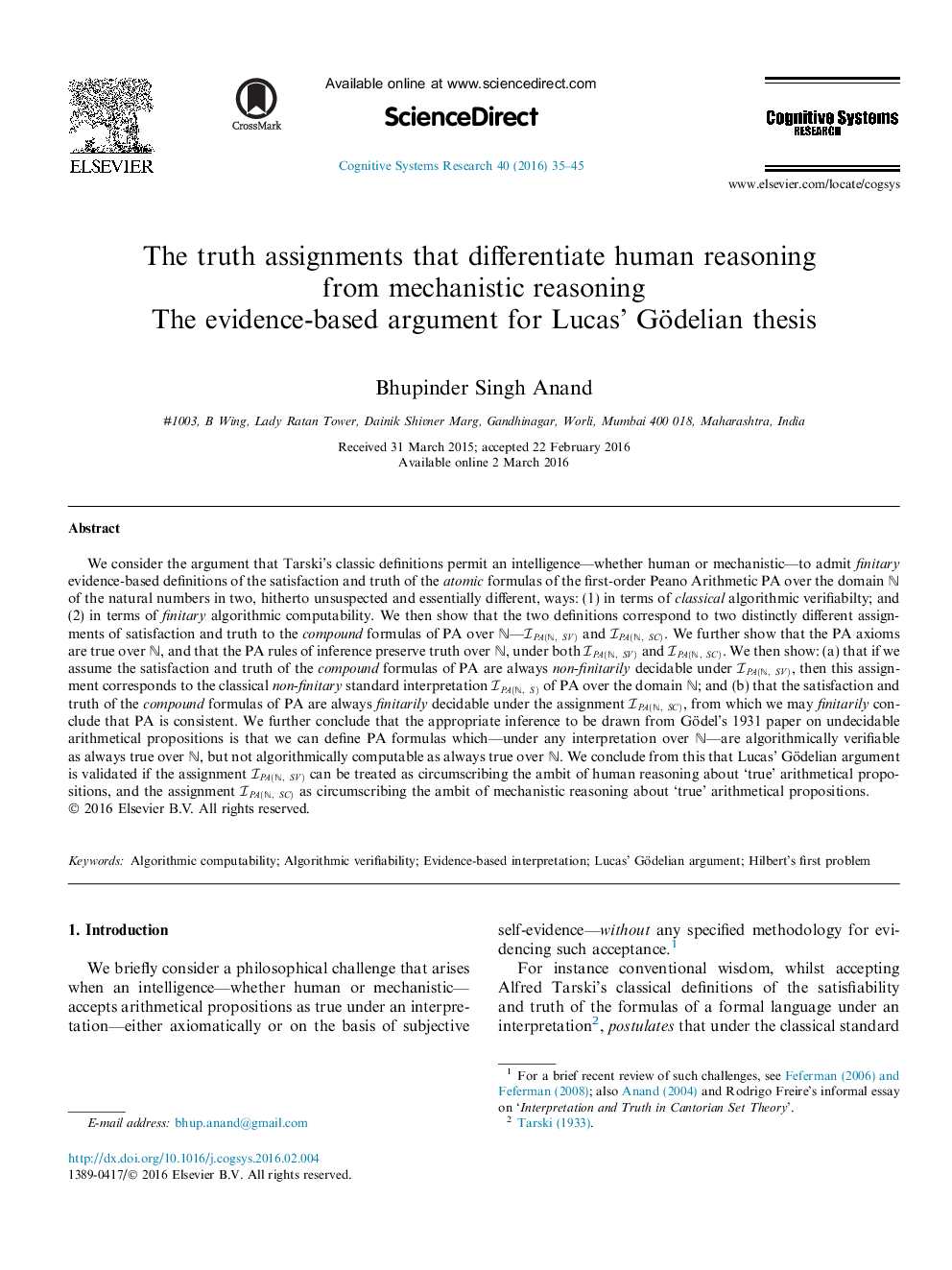| Article ID | Journal | Published Year | Pages | File Type |
|---|---|---|---|---|
| 378349 | Cognitive Systems Research | 2016 | 11 Pages |
We consider the argument that Tarski’s classic definitions permit an intelligence—whether human or mechanistic—to admit finitary evidence-based definitions of the satisfaction and truth of the atomic formulas of the first-order Peano Arithmetic PA over the domain NN of the natural numbers in two, hitherto unsuspected and essentially different, ways: (1) in terms of classical algorithmic verifiabilty; and (2) in terms of finitary algorithmic computability. We then show that the two definitions correspond to two distinctly different assignments of satisfaction and truth to the compound formulas of PA over NN—IPA(N,SV) and IPA(N,SC). We further show that the PA axioms are true over NN, and that the PA rules of inference preserve truth over NN, under both IPA(N,SV) and IPA(N,SC). We then show: (a) that if we assume the satisfaction and truth of the compound formulas of PA are always non-finitarily decidable under IPA(N,SV), then this assignment corresponds to the classical non-finitary standard interpretation IPA(N,S) of PA over the domain NN; and (b) that the satisfaction and truth of the compound formulas of PA are always finitarily decidable under the assignment IPA(N,SC), from which we may finitarily conclude that PA is consistent. We further conclude that the appropriate inference to be drawn from Gödel’s 1931 paper on undecidable arithmetical propositions is that we can define PA formulas which—under any interpretation over NN—are algorithmically verifiable as always true over NN, but not algorithmically computable as always true over NN. We conclude from this that Lucas’ Gödelian argument is validated if the assignment IPA(N,SV) can be treated as circumscribing the ambit of human reasoning about ‘true’ arithmetical propositions, and the assignment IPA(N,SC) as circumscribing the ambit of mechanistic reasoning about ‘true’ arithmetical propositions.
